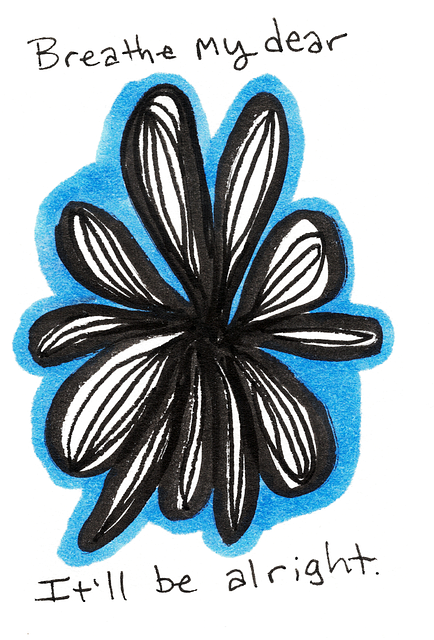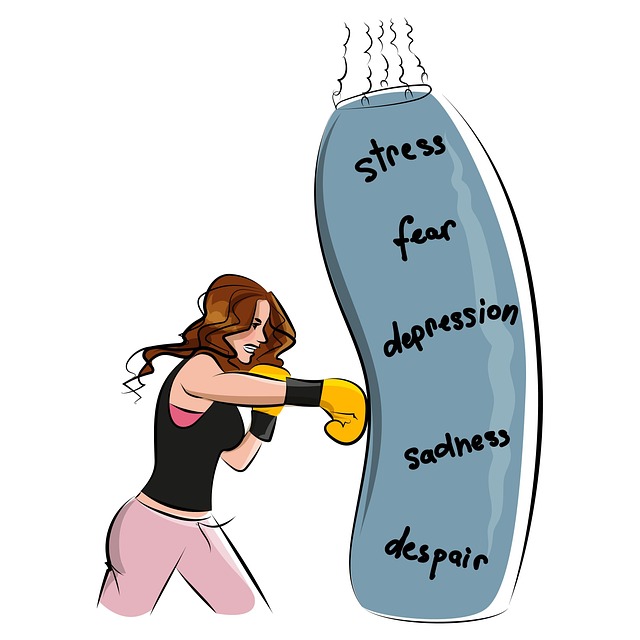Boulder Hebrew Speaking Therapy (BHST) offers a unique, culturally tailored approach to mental wellness, emphasizing resilience through the RFM framework. They combine traditional therapy with Hebrew cultural elements, providing specialized programs for self-awareness, community support, and policy advocacy. BHST's holistic method includes stress management workshops, mindfulness techniques, and physical activities to build mental flexibility and strengthen coping mechanisms. Their evaluation process tracks progress through various metrics, ensuring tailored interventions for sustainable mental health improvement.
“Resilience is a vital asset in navigating life’s challenges, and RFM (Resilience, Flexibility, and Mastery) techniques offer a powerful framework for building this strength. This article explores how Boulder Hebrew Speaking Therapy, a unique mental health support system, leverages RFM to foster resilience. We delve into understanding the core principles of RFM, its practical applications in daily life, and effective measurement strategies. By examining these aspects, we uncover how individuals can enhance their coping mechanisms and thrive despite adversity, with a special focus on the innovative approach of Boulder Hebrew Speaking Therapy.”
- Understanding RFM: The Foundation of Resilience Building
- Boulder Hebrew Speaking Therapy: A Unique Approach to Mental Health Support
- Identifying and Enhancing Resilient Coping Mechanisms
- Practical Exercises for Daily Resilience Training
- Measuring Progress: Evaluating the Effectiveness of RFM Techniques
Understanding RFM: The Foundation of Resilience Building

Resilience is a crucial aspect of mental well-being, enabling individuals to navigate life’s challenges with strength and adaptability. This concept forms the core of what Boulder Hebrew Speaking Therapy (BHST) offers through their specialized programs. RFM, or Recovery, Resilience, and Mental Flexibility, is a framework that serves as the foundation for building resilience. It involves understanding and cultivating three key elements: Recovery refers to an individual’s ability to bounce back from setbacks; Resilience equips one with strategies to cope with adversity; and Mental Flexibility allows for adjusting to change and uncertainty.
BHST’s approach integrates Self-Awareness Exercises, Community Outreach Program Implementation, and even Mental Health Policy Analysis and Advocacy into their RFM model. By addressing each component, individuals gain the tools to enhance their overall resilience, fostering a sense of empowerment in managing stress, anxiety, or other mental health concerns. This holistic method ensures that people not only recover from challenges but also develop lasting strategies for personal growth and well-being.
Boulder Hebrew Speaking Therapy: A Unique Approach to Mental Health Support

Boulder Hebrew Speaking Therapy offers a unique and innovative approach to mental health support, catering specifically to individuals seeking therapeutic services in their native language—Hebrew. This specialized therapy program recognizes the importance of cultural context and linguistic fluency in fostering effective healing. By combining traditional talking therapies with elements of Hebrew culture and traditions, therapists create a safe and supportive environment tailored to each client’s needs.
The approach prioritizes building resilience through various exercises designed to enhance self-care practices and stress reduction methods. It incorporates techniques from cognitive-behavioral therapy, mindfulness practices, and cultural rituals to help individuals manage their mental health effectively. This holistic method not only addresses current challenges but also empowers clients with long-term risk management planning for mental health professionals, enabling them to navigate life’s stresses and struggles with newfound resilience.
Identifying and Enhancing Resilient Coping Mechanisms

Resilience is a crucial asset in navigating life’s challenges, and identifying personal coping mechanisms is a key step in building it. The Boulder Hebrew Speaking Therapy organization emphasizes the importance of understanding one’s unique ways of dealing with stress and adversity. By recognizing these coping strategies, individuals can enhance their ability to bounce back from difficult situations. This process involves introspection and awareness, where one identifies both healthy and unhealthy mechanisms. For instance, while some may turn to exercise or creative outlets for stress relief, others might engage in avoidance behaviors or self-medication.
Through targeted exercises and workshops, the Stress Management Workshops Organization helps individuals uncover and refine their resilient coping strategies. By participating in these programs, healthcare providers can also implement effective burnout prevention strategies, which are essential for maintaining mental well-being. The organization’s approach to depression prevention includes teaching individuals how to manage stress effectively, fostering a sense of control and resilience, and ultimately improving overall mental health.
Practical Exercises for Daily Resilience Training

Building resilience is a daily practice, and incorporating practical exercises into your routine can significantly enhance mental wellness. At Boulder Hebrew Speaking Therapy, we emphasize the importance of resilience as a cornerstone of overall mental health policy analysis and advocacy. Our approach includes simple yet powerful techniques that individuals can easily integrate into their everyday lives.
One effective exercise is mindfulness meditation, which encourages individuals to focus on the present moment, thereby reducing anxiety and stress. Deep breathing exercises and body scans are also valuable tools for cultivating awareness and promoting relaxation. Additionally, engaging in physical activities like yoga or even a brisk walk can boost mood and provide a healthy outlet for processing emotions, contributing to both mental wellness and resilience.
Measuring Progress: Evaluating the Effectiveness of RFM Techniques

Measuring progress is a critical component of any effective therapy program, especially when employing Resilient Fitness Model (RFM) techniques. At Boulder Hebrew Speaking Therapy, we understand that evaluating the success of resilience-building exercises requires a multifaceted approach. This involves tracking not only the client’s symptoms and behavior changes but also their overall well-being and satisfaction with the process.
Through regular risk assessment and management planning, as outlined in our Cultural Sensitivity in Mental Healthcare Practice, we tailor interventions to meet individual needs. By integrating Risk Management Planning for Mental Health Professionals, we ensure that progress is not only measurable but also sustainable. This includes assessing how clients cope with stress, navigate challenges, and maintain their mental health over time, ultimately fostering a more resilient and balanced life.
Boulder Hebrew Speaking Therapy offers a unique and innovative approach to mental health support, focusing on building resilience through the RFM model. By understanding the power of resilient coping mechanisms and implementing practical exercises, individuals can enhance their ability to navigate life’s challenges. This comprehensive framework, backed by scientific research, allows for personalized resilience training, enabling folks to flourish even in the face of adversity. The effectiveness of these techniques is evident in the measurable progress seen when applying the RFM model, making it a valuable tool for anyone seeking to strengthen their mental fortitude.














